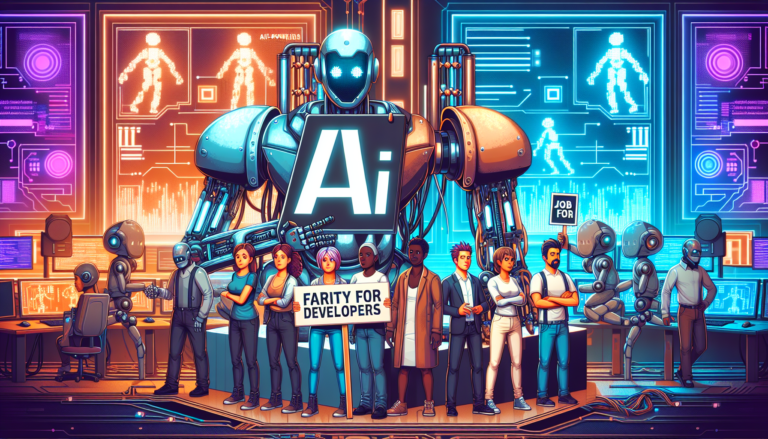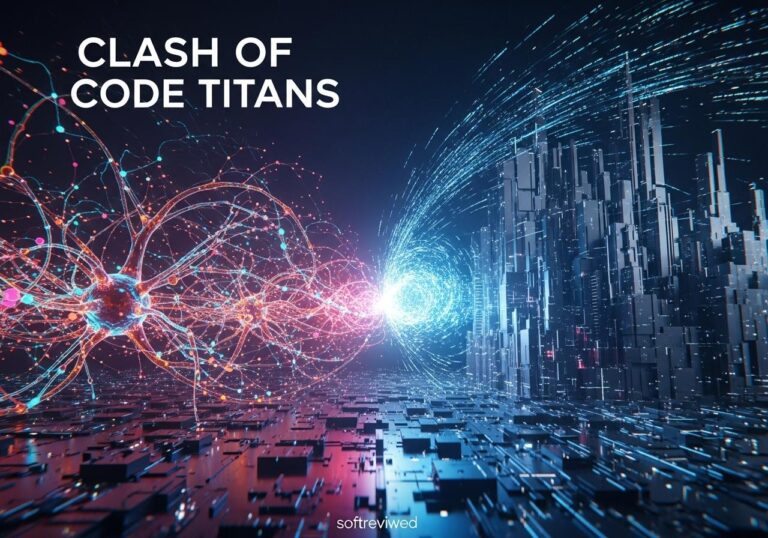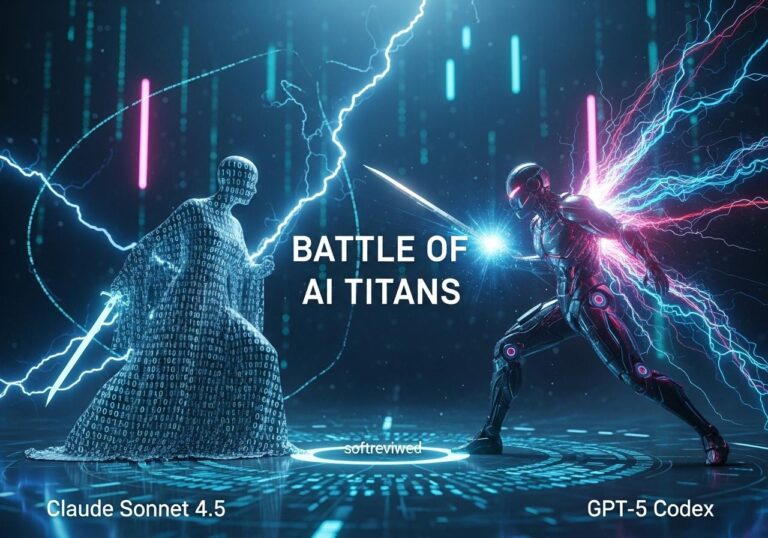AI Impact on the Video Game Industry
The adoption of generative AI tools is reshaping the video game industry, leading to significant job losses and increased concerns about job security.
10,500 Layoffs in 2023
The video game industry lost 10,500 jobs in 2023, with more expected in 2024, primarily due to the adoption of generative AI tools.
AI Impact on Job Security
Game industry workers are increasingly concerned about AI replacing human roles, leading to anxiety and an influx of unionization efforts.
Generative AI tools in Game Development
Companies like Activision Blizzard are using AI tools such as Midjourney and Stable Diffusion to aid in game development, causing significant job displacement and AI-driven layoffs.
Increased Unionization Efforts
A significant number of game industry workers are seeking unionization to protect their roles and control the integration of AI into game development processes.
Future Job Impact
Predictions suggest that AI could handle over half of game development tasks within the next 5-10 years, further threatening job security and quality in the industry.
Global Impact
AI is also affecting job opportunities in countries like China, where studios are increasingly using AI tools to reduce labor costs.
The Rise of AI in Gaming: A Double-Edged Sword
Artificial Intelligence (AI) has become a game-changer in various industries, and the video game sector is no exception. As AI tools and technologies advance, they’re reshaping the landscape of game development, bringing both excitement and concern. While AI promises enhanced gameplay experiences and improved efficiency, it also raises questions about job security and the future of human creativity in the industry.
AI’s Impact on Gaming Jobs: A Growing Concern

The integration of AI in video game development has led to significant changes in the workforce. Many companies, including industry giants like Activision Blizzard, are increasingly turning to AI tools to handle tasks traditionally performed by human employees. This shift has resulted in:
- Widespread layoffs
- Job insecurity among workers
- Anxiety about the future of human roles in game development
As AI capabilities expand, more positions are at risk of being automated, leading to a ripple effect across the industry.
The Human Cost of AI Adoption
The move towards AI-driven development has not been without its human cost. Workers who have dedicated years to honing their craft in game design, animation, and programming now find themselves facing an uncertain future. Some of the roles most affected include:
- Character designers
- Environment artists
- Quality assurance testers
- Voice actors
While AI can streamline certain processes, it also threatens to displace skilled professionals who bring unique creative perspectives to game development.
Unionization: A Response to AI-Driven Job Losses
In response to the growing threat of job displacement, many workers in the gaming industry are turning to unionization as a means of protecting their livelihoods. This movement is gaining traction for several reasons:
- Job security: Unions can negotiate agreements that limit the use of AI in roles traditionally held by humans.
- Fair compensation: As AI takes over more tasks, unions can ensure that remaining human workers are fairly compensated for their specialized skills.
- Retraining opportunities: Unions can advocate for programs that help workers adapt to new roles in an AI-enhanced industry.
- Ethical AI implementation: Organized labor can push for responsible AI adoption that considers the well-being of human workers.
The Ripple Effect of Gaming Unionization
The unionization efforts in the gaming industry could have far-reaching implications beyond video games. As one of the first creative industries to grapple with widespread AI adoption, the gaming sector’s response could set precedents for other tech-related fields.
Ethical Considerations in AI-Driven Game Development
The rapid integration of AI in game development raises several ethical questions that the industry must address:
- Job displacement vs. innovation: How can companies balance the benefits of AI with their responsibility to their workforce?
- Creative ownership: As AI generates more content, who owns the rights to AI-created game elements?
- Quality control: Can AI match the nuanced understanding of human experience that informs game design?
- Diversity in gaming: Will AI perpetuate existing biases in game content and character representation?
Balancing Progress and Human Value
While AI offers exciting possibilities for game development, it’s crucial to consider the value that human creativity and experience bring to the table. Game companies must find ways to harness AI’s potential without losing the human touch that makes games resonate with players.
The Changing Face of Game Development
As AI becomes more prevalent in the gaming industry, we’re likely to see significant changes in how games are made:
- Faster development cycles: AI can automate time-consuming tasks, potentially speeding up the game creation process.
- More dynamic content: AI-generated elements could lead to games that adapt and evolve based on player behavior.
- Smaller development teams: With AI handling more tasks, studios may operate with fewer human employees.
- New job roles: While some positions disappear, new roles focused on AI management and integration may emerge.
AI-Enhanced Gameplay: A Silver Lining?
Despite the challenges, AI has the potential to enhance the gaming experience in several ways:
- More realistic NPCs with advanced behavior patterns
- Procedurally generated worlds with unprecedented detail and variety
- Adaptive difficulty levels that provide perfectly tailored challenges
- Improved accessibility features for players with disabilities
These advancements could lead to more immersive and engaging games, potentially offsetting some of the negative impacts on the workforce.
The Industry’s Response to AI Integration
As AI becomes more prevalent, game companies are taking different approaches to its integration:
- Some are fully embracing AI, replacing human roles wherever possible.
- Others are taking a more cautious approach, using AI as a tool to augment human creativity rather than replace it.
- A few companies are publicly committing to maintaining human-centric development processes.
Case Studies: AI Adoption in Major Gaming Companies
- Activision Blizzard: Known for its aggressive AI adoption, leading to significant layoffs.
- Ubisoft: Investing heavily in AI research while maintaining a large human workforce.
- Indie studios: Often using AI tools to compete with larger studios’ resources.
The Role of Regulators and Policymakers
As the gaming industry grapples with AI’s impact, regulators and policymakers may need to step in to ensure fair practices:
- Developing guidelines for ethical AI use in creative industries
- Establishing retraining programs for displaced workers
- Creating incentives for companies that maintain a balance between AI and human employees
Global Perspectives on AI in Gaming
Different regions are approaching the AI challenge in gaming differently:
- United States: Focusing on innovation with limited regulation
- European Union: Considering stricter AI regulations that could affect game development
- Japan: Encouraging AI adoption while supporting traditional game development practices
Preparing for an AI-Driven Future in Gaming
For those working in or aspiring to join the gaming industry, preparing for an AI-driven future is crucial:
- Skill diversification: Develop a range of skills that complement AI capabilities.
- AI literacy: Gain an understanding of AI technologies and their applications in game development.
- Creativity focus: Emphasize uniquely human creative skills that AI cannot easily replicate.
- Adaptability: Be ready to pivot roles as the industry evolves.
- Continuous learning: Stay updated on the latest AI advancements and their impact on gaming.
Educational Institutions Adapting to AI in Gaming
Colleges and universities are updating their game development programs to reflect the changing industry:
- Introducing AI and machine learning courses specific to game development
- Emphasizing the importance of human creativity alongside technical skills
- Offering interdisciplinary programs that combine game design with AI ethics
The Future of Human-AI Collaboration in Gaming
Despite the challenges, many industry experts believe that the future of gaming lies in effective collaboration between humans and AI:
- AI handling repetitive tasks and data analysis
- Humans focusing on high-level creative direction and emotional storytelling
- Hybrid roles emerging that require both technical AI knowledge and creative skills
Potential Scenarios for the Gaming Industry’s Future
- AI Dominance: Large-scale automation leads to smaller, AI-driven development teams.
- Human-AI Balance: A new equilibrium is reached with AI and humans working in tandem.
- Human Resurgence: Players demand more human-created content, leading to a revival of traditional development roles.
Conclusion: Navigating the AI Revolution in Gaming
The integration of AI in the video game industry presents both opportunities and challenges. While job losses and the need for unionization are significant concerns, the potential for AI to enhance game development and player experiences cannot be ignored.
As the industry moves forward, it must strive to find a balance that harnesses the power of AI while valuing the irreplaceable creativity and insight that human developers bring to the table. By addressing ethical concerns, supporting workers through the transition, and fostering innovation, the gaming industry can navigate this AI revolution and emerge stronger, creating even more captivating and immersive experiences for players around the world. Additionally, it is vital to acknowledge the ongoing challenges faced by those on the creative frontlines, such as the video game actors on strike, who seek fair treatment and compensation as technological advancements reshape their roles. Ensuring that AI complements rather than replaces human talent will be key to preserving the collaborative spirit that has long driven the success of the industry. By maintaining this equilibrium, the gaming world can continue to thrive while respecting both its creators and its players.
The future of gaming will likely be shaped by those who can effectively blend human ingenuity with AI capabilities, creating games that push the boundaries of technology while maintaining the heart and soul that only human creators can provide.
AI Impact on Video Game Industry (2023-2024)
This chart illustrates the adoption of AI in the video game industry and its impact on job losses. Hover over chart elements for more details.







